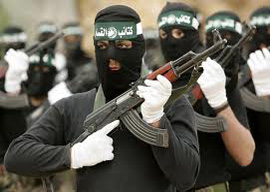
June 26, 2012

Sixteen months after the United States abandoned its loyal satrap of 30 years, President Hosni Mubarak, to champion democracy in Egypt, the returns are in.
Mohammed Morsi, candidate of the Muslim Brotherhood, is president of Egypt, while the military has dissolved the elected parliament that was dominated by the Brotherhood, and curbed his powers.
The military and the mullahs will fight for the future of a country that is home to one in four Arabs. The soldiers who have dominated Egypt since the ouster of King Farouk in 1952 show no willingness to surrender what they have long controlled of the state and economy.
Yet in the long run, the Brotherhood—whose claim to guide the nation’s destiny is rooted in a faith 1,400 years old—is likely to prevail.
In Syria, the uprising against Bashar Assad appears headed for civil war, with atrocities on both sides. Some 10,000 are estimated to have died, a far bloodier affair than Egypt. And here, too, the day of the Brotherhood, massacred in the thousands by Bashar’s father in Hama, seems not far off.
Witnessing what is happening in these critical Arab countries and across the region, one is tempted to ask: What are the fruits of three decades of compulsive U.S. intervention in the Islamic world?
Ronald Reagan put Marines in Lebanon to support an embattled Beirut regime and saw 241 of them massacred in their barracks.
In 1986, he ordered air strikes on Libya in retaliation for the bombing of a Berlin nightclub frequented by GIs. Reagan was paid back in his final days in office when Moammar Gadhafi’s killers blew up Pan Am 103, scattering the bodies of U.S. school kids over the Lockerbie landscape.
George H.W. Bush launched Desert Storm to rescue Kuwait from Saddam Hussein and restore the emir. After five weeks of air war and 100 hours of ground combat, Bush triumphed. He then imposed an embargo-blockade on Iraq and transferred thousands of U.S. troops onto Saudi soil that is home to Mecca and Medina.
Two of the causes of his attack on 9/11, said Osama bin Laden, were the U.S. strangulation of Iraq and the defiling of Islam’s sacred soil by infidel U.S. troops.
George W. Bush answered 9/11 by invading Afghanistan, driving out the Taliban and al-Qaida, and staying on to build a more secular, democratic and pluralistic nation. He then invaded Iraq to overthrow Saddam and convert that country into a model Arab democracy and strategic base camp for the United States in the Middle East.
What did those wars cost? What did they accomplish?
Some 6,500 U.S. dead, 40,000 wounded, $1 to $2 trillion sunk. Tens of thousands of Afghan and 100,000 Iraqi dead, with widows and orphans numbering over 500,000. Half the Christians of Iraq have fled their homes, and half of these have fled the country in which their ancestors had lived almost since the time of Christ.